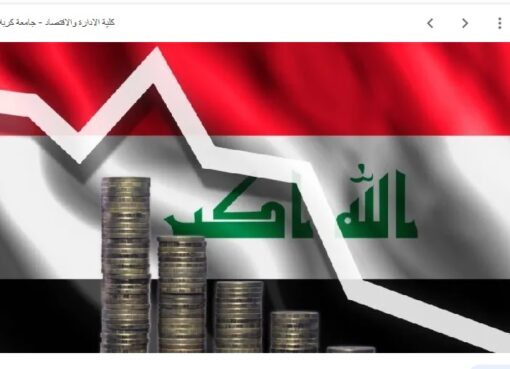Iraqis start the second centenary of their history as if they were guests of humanity, as Mahmoud Darwish used to say.
One hundred years have passed since the founding of the modern Iraqi state (1921-2021), a zero-harvest centenary for a country that is on the brink of collapse.
Iraq faces a host of existential threats, the least dangerous of which is the spectre of corruption that hovers over submerged state and non-state mechanisms, as well as bankruptcy indicators steadily mounting alongside an annual financial deficit, which overlap with complex crises that the authorities are incapable of defusing or tackling.
This is a centenary where Iraq cannot celebrate any real achievements because there is no achievement which puts it on a par with countries and societies, which compete in science, innovation, industry, technology, agriculture, investment, economic growth, sustainable development and the development of national wealth.
The centenary was marked by an official celebration with unconvincing words uttered by the government officials, as well as celebrated by musical and poetic performances borrowed from ancient history and the time of Gilgamesh, with boring and shameless monotony. There is no vision of the future nor of the roles that Iraqis could play in their quest to escape the reality of the current situation and overcome the stifling crises.
The centenary has come without the country having the ability or courage to review the mistakes and the series of collapses during the second half of the century. These have seen bloody outcomes for all Iraqis in a century that has brought various forms of occupation, rebel militias and ISIS hordes of different hues, unprecedented social backwardness, dangerous cultural decline and popular fears of armed strife between factions and parties that want to cling on to power forever.
It is an absurd drama during which Iraq began the first half of the century with industry, agriculture, commerce, modern technologies, culture, arts, literature, law and the judiciary. It thereafter started a speedy decline, until it reached the present zero level of the centenary. There was half a century of dictatorship, with wars and displacement, sectarianism, dark ideas and armed conflict between warlords and sectarian factions. It was enough to bring about the comprehensive destruction of Iraq, in an anomalous and unique piece of history.
Time is of paramount importance for living societies, as all achievements, construction projects, progress and strategies are linked to time, which makes them look to the future with knowledge of what they want. This is not the case for Iraqis as they enter their unknown destiny. They start the second centenary of their history as if they were guests of humanity, as Mahmoud Darwish used to say.
The painful irony is that the first century of the modern Iraqi state began under the leadership of distinguished elites, be it in thought, philosophy, management, medicine, trade, economy, industry, construction, architecture and planning, moreover with rising growth. The trend reached its apex in the fifties and sixties of the last century. Today, however, Iraqis lack that abundance of competencies and human resources that were associated with its beginning as a modern state, where people strove to complete construction through a contemporary outlook and regional and global excellence.
The progress achieved by Iraqis in the first half of their state’s life, from the twenties of the last century to the seventies, was lost in the following fifty years when authority was encapsulated in dictatorial whims, the attitudes of its totalitarian regime and the bloody tendency to execute its opponents and close the windows of diversity, pluralism and civil spirit. This instead put personal and partisan loyalty above all else. It perpetuated clannish culture and the environment of war that encouraged hypocrisy, lies and political duplicity as the notion of “citizens” was missing in action. We ended up with a society dominated by violent behaviour and prepared to embrace sectarianism and the culture of hatred brought by the parties of political Islam. We ended up with a society separated from its past, irredeemably afflicted with schizophrenia.
Human ruin represents Iraq’s greatest loss thanks to the country’s ethnic and sectarian fragmentation.
(*) Falah Al-Mashaal is a senior Iraqi journalist
Source: The Arab Weekly, Tuesday 14/12/2021
https://thearabweekly.com/iraqs-tragic-century








Comment here